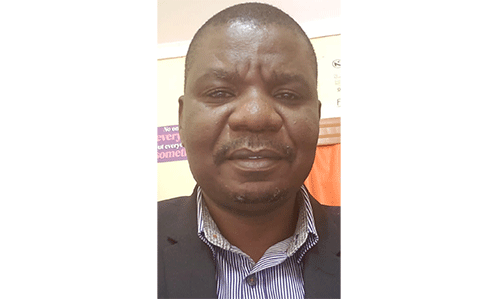Poor relations among family members is an issue that had been raised at various memorial services I attended, especially in the two Kavango regions. Contemporary families are being blamed for lacking cohesion due to selfish agendas. These days, family members from the same bloodline are not talking to each other. The togetherness which existed between relatives to be concerned about each other’s well-being not only when support is needed, is evaporating.
While the yesteryear family members made attempts to stay in touch with other relatives despite communication challenges, the digital natives can stay for months without bothering to know what is happening with the other family member. The fact that family relations had broken down has led to issues such as lack of love, crime and rape becoming a daily occurrence in our society.
Some contemporary children don`t know other relatives apart from their own siblings, and to a lesser extent their nephews/nieces, prompting the elders to fear that inter-marriages between blood relatives might occur in the future.
It is worrying that if the current trend of individualism and materialism is not slowed, the concept of family will become dormant, especially with the boomers who continue to keep the family together saying goodbye one by one.
A true African man is known and identified in, by and through his family. The family is the custodian of the individual; he must go where the family goes. There are Kavango proverbs that state that “satoka soge sarerema samukweni”, while another one enunciates that “Likoro kapi valiferanga mukaru”. There is also a saying that ‘one cannot choose his family, but he/she can choose who his/her friends can be’. Like the Bible proclaims, whoever does not love their brother and sister, whom they have seen, cannot love God, whom they have not seen (1 John 4:20). The same can be said that one cannot claim to love a stranger genuinely while he/she can`t speak to his or her siblings, relatives or parents.
The family is considered a basic nucleus of society. Family plays a crucial role in African society. The family was seen as the fundamental element of the African, the basic sphere of action, through which one became integrated with the larger human community. Family is defined as blood/or marriage and analogous groups. Although family by marriage and analogous groups are critical, I am more concerned about family by blood. By blood, I refer to those whose parents have the same mother/father or grandparents.
Before the advent of Western civilisation, the sense of brotherhood and hospitality were some of the cardinal values of an indigenous African family. The African family`s idea of security and its value depended on personal identification with and within the particular family. The African family relations were indissolubly connected with culture, and permeated the whole of life. Living together and the sense of community of brothers and sisters was the basis of and the expression of the extended family system in Africa. It is not considered repugnant to ask one`s family for help if one is struggling to make ends meet. In almost all instances, there was help between families, communities, etc. even in spite of challenges. Due to the bond within various families in the community, the whole community bonded as a family, which led to support for each other in that particular village or society. This explains the reasons why a community may have poor people, but may not have beggars.
A member of a family acquired their identity from that group as each group had its own value systems such as love, humility, respect, hard work, integrity and self-sustainability. The cultural and moral norms of the family helped an individual to grow into a productive and respected member of the community. These norms served as a blueprint for his/her life.
However, with the arrival of the colonial overlords, different ideologies and philosophies about family relations such as individualism and materialism came into play. The African social definition of a family displays the family member as a subsistent relationship – in other words, the family member as fundamentally “being with”, and “belonging to”. Western philosophy lays emphasis on the absolute originality and concreteness of a family member as “a being for itself”.
For generations, the family has been a fount of strength for counsel and support, thus providing members with a wide circle of relatives on whom they can fall back. In times of crisis, unemployment, sickness, poverty, old age and bereavement, most people relied on the family as the main source of material, social and emotional support and social security. Therefore, if the notion of the family were to disappear from our cultural view, our traditional culture will be greatly affected. I hope it will never happen because our culture will lose one of its foundations. With the festive season approaching, let many families celebrate the fundamentality of family by burying past misunderstandings and disagreements by spending these festivities together through peace and love.


